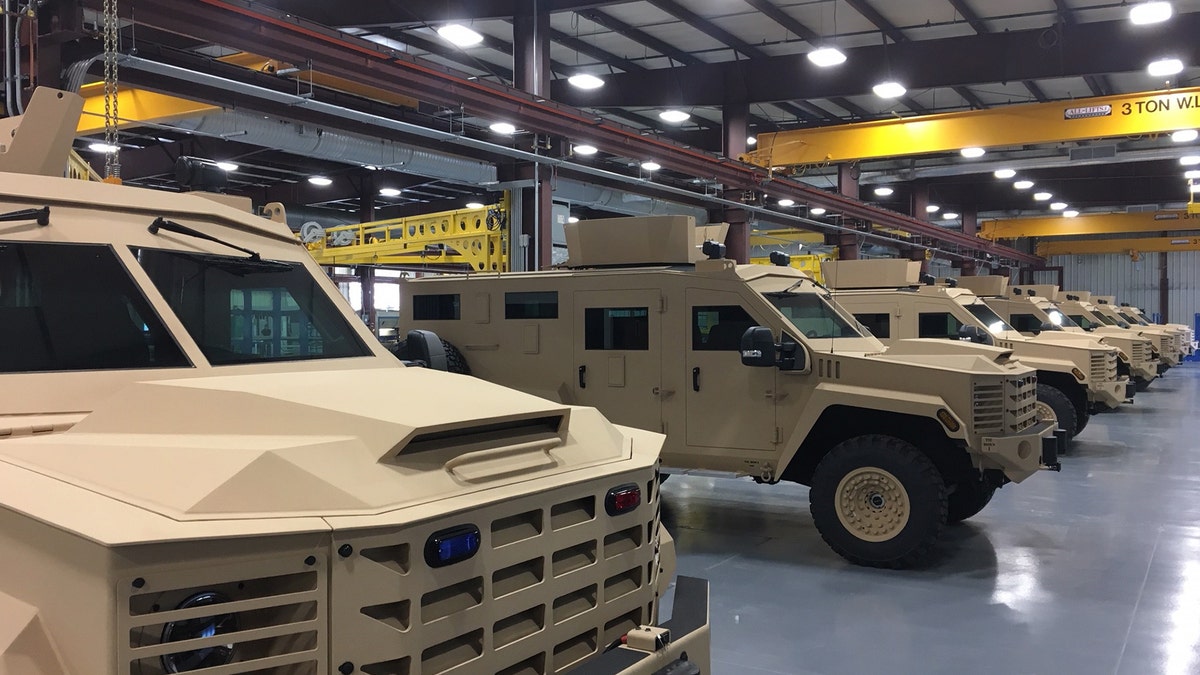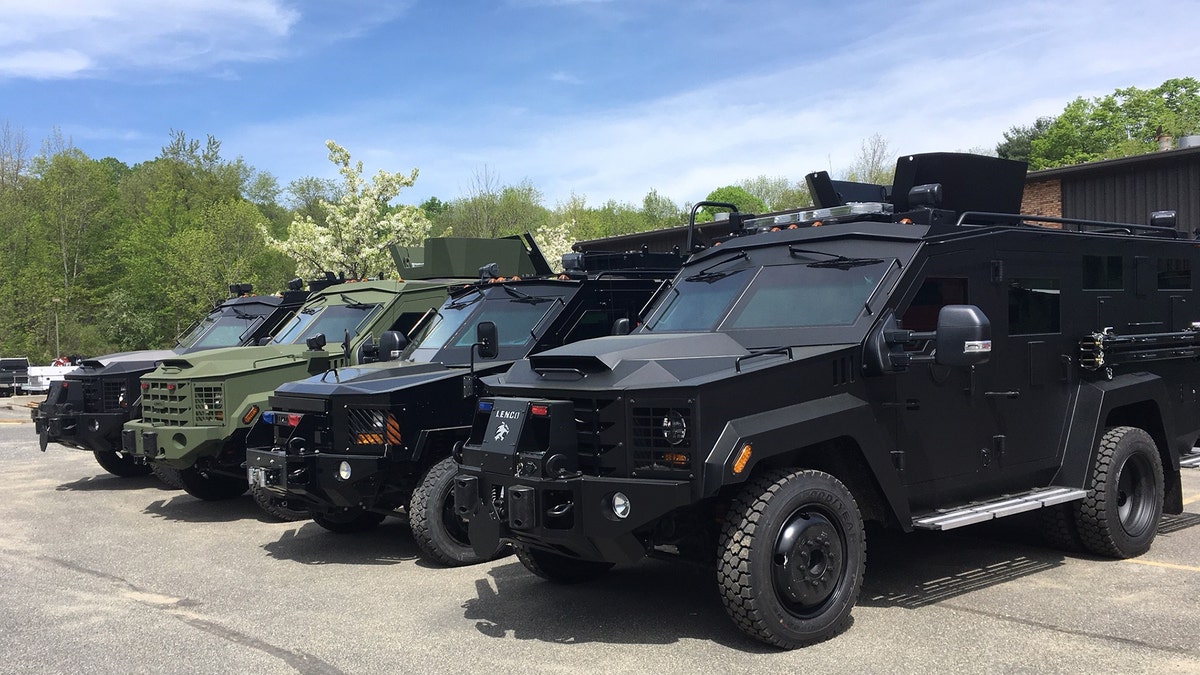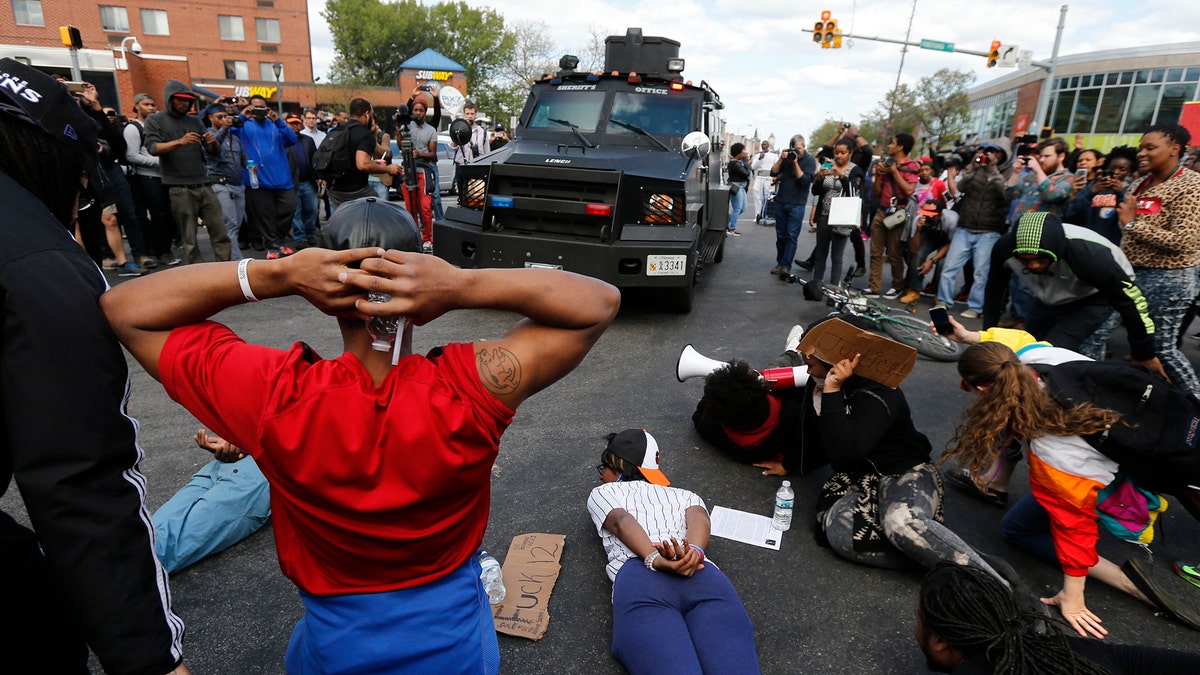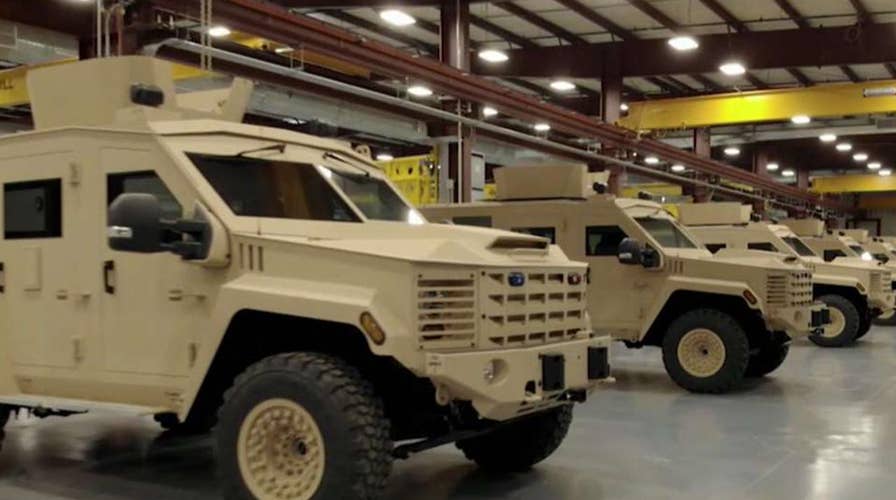Manufacturer defends police use of military-style equipment
Bearcat vehicles can cost as much as $250,000; critics express concern over the militarization of police departments.
PITTSFIELD, Mass. – You may not know what a Bearcat is but you’ve probably seen them, deployed by SWAT and tactical teams responding to violent protests and barricade situations, or to save people trapped in hurricanes, floods and mudslides.
Police departments nationwide have been stocking up on the Armored Incident Response & Rescue Vehicles, taking advantage of a federal program enacted in the 90s allowing law enforcement access to military-grade gear.
The program was temporarily suspended by President Obama in 2015 but reinstated by President Trump last year. Mr. Trump signed an executive order lifting the ban on military gear to police departments. Attorney General Jeff Sessions said at the time that the restart would "send a strong message that we will not allow criminal activity, violence and lawlessness to become a new normal."
TRUMP, DOJ REVERSE OBAMA RESTRICTIONS ON MILITARY GEAR FOR LOCAL POLICE
The Bearcat is built by LenCo Armored Vehicles of Pittsfield Massachusetts, which just spent $5 million to expand production of their highly sought after all-terrain beast, purchasing and refurbishing the 70,000-square-foot building adjacent to their original factory to eventually double the output of product.

Police departments nationwide have been stocking up on the Armored Incident Response & Rescue Vehicles, taking advantage of a federal program enacted in the 90s allowing law enforcement access to military-grade gear. (Jeremy Copas, Fox News)
LenCo has built and sold nearly 6,000 BearCats to local, state and federal law enforcement agencies and 40 foreign governments. The trucks, built on a shortened Ford F-550 chassis, weigh roughly nine tons, fabricated from flat sheets of American-made bulletproof steel and bulletproof glass. The CEO of LenCo, Len Light, says it is “necessary to give these departments the best tools they need to protect themselves in life-threatening situations.”
Critics of the vehicles call the militarization of police forces a threat to local law enforcement and community partnerships.
Mathew Feeney of the Cato Institute insists “It’s very important local communities don’t view their police department as an occupying force,” saying “unfortunately, the militarization of the police really does blur that distinction.”

Currently in over 800 local departments, the BearCat has been used in nationally covered riots and protests, most notably in Ferguson, Miss. and Baltimore. (Jeremy Copas, Fox News)
It takes about four weeks to build a single BearCat, with 100 employees finishing one BearCat a day on average. The demand for the vehicle was so great it led to a back order of close to a year and a half. The expansion into the new facility is expected to bring that wait time down to eight months or less when fully operational.
Currently in over 800 local departments, the BearCat has been used in nationally covered riots and protests, most notably in Ferguson, Miss. and Baltimore.
The American Civil Liberties Union, or ACLU, launched its “War Comes Home” campaign, advocating against “excessive militarization of American policing”, and identifying the BearCat, saying it “appears threatening.”
LenCo understands the criticism but says its vehicles “save lives.” Officials at the company told Fox News story after story of officers thanking them after shootouts where the vehicle prevented harm to the police and citizens.

Critics of the vehicles call the militarization of police forces a threat to local law enforcement and community partnerships. Mathew Feeney of the Cato Institute said: “It’s very important local communities don’t view their police department as an occupying force. Unfortunately, the militarization of the police really does blur that distinction.”
The expansion is expected to help re-brand the company as a rescue vehicle. During multiple national disasters in the past year, including floods, wildfires and mudslides, the BearCat has been utilized in a search and recovery capacity. Outfitted with a water cannon, and a 350-gallon water tank, the company hopes to attract more fire and first responder departments.
The BearCat is not commercially sold, and must be purchased by a local, state or federal agency.
The expansion project is expected to create about 20 percent more jobs in the western Massachusetts company.


